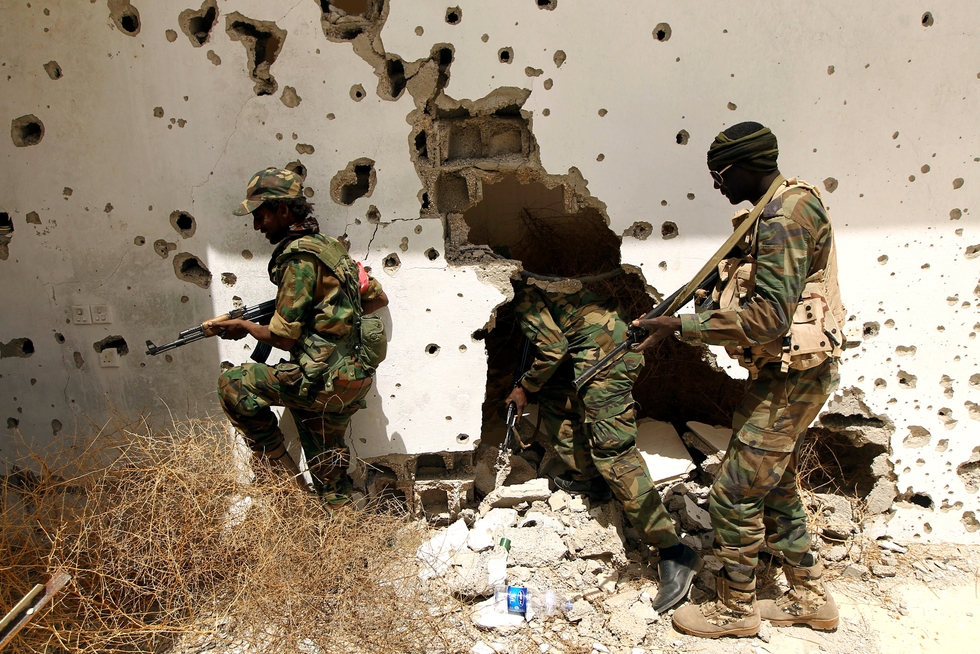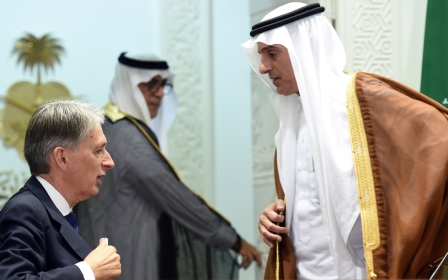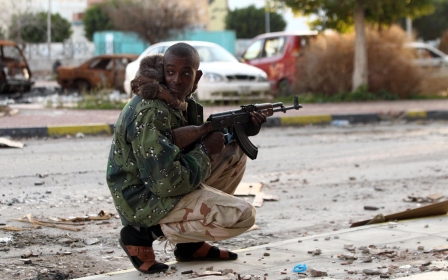Libya forces drive militants from area of Benghazi: Report

Libyan forces loyal to a renegade general have taken control of an area of Benghazi from militants, reports say.
General Khalifa Haftar's troops now control al-Gwarcha area of the eastern city, according to the general's spokesman Khalifa al-Obeidi.
"We are presently pursuing terrorists who are entrenched 1km east," he said.
Six of Haftar's fighters died in clashes this week in al-Gwarcha district, including four special forces killed by a landmine explosion, Obeidi said.
Haftar leads forces he calls the "Libyan National Army," which is fighting militants but opposes the country's UN-backed unity government in Tripoli.
The general says he still takes orders from a rival administration based in the far eastern city of Tobruk.
Middle East Eye has reported that Haftar has been backed by international troops from Britain, France and Italy, among others, despite his opposition to the unity government.
Recordings have been leaked of British pilots flying over Libya. The international forces have apparently directed Haftar's forces and co-ordinating at least one air strike on militants.
Haftar's forces have regained several districts of Benghazi in recent months but have yet to retake the whole city.
Benghazi, 1,000km east of Tripoli, has for the past two years been the scene of clashes between militants and forces loyal to the Tobruk administration.
Militants from groups including the Islamic State group took root in Libya in late 2014, taking advantage of the chaos and power struggles that followed the fall of Muammar Gaddafi's regime in a 2011 revolution.
New MEE newsletter: Jerusalem Dispatch
Sign up to get the latest insights and analysis on Israel-Palestine, alongside Turkey Unpacked and other MEE newsletters
Middle East Eye delivers independent and unrivalled coverage and analysis of the Middle East, North Africa and beyond. To learn more about republishing this content and the associated fees, please fill out this form. More about MEE can be found here.




